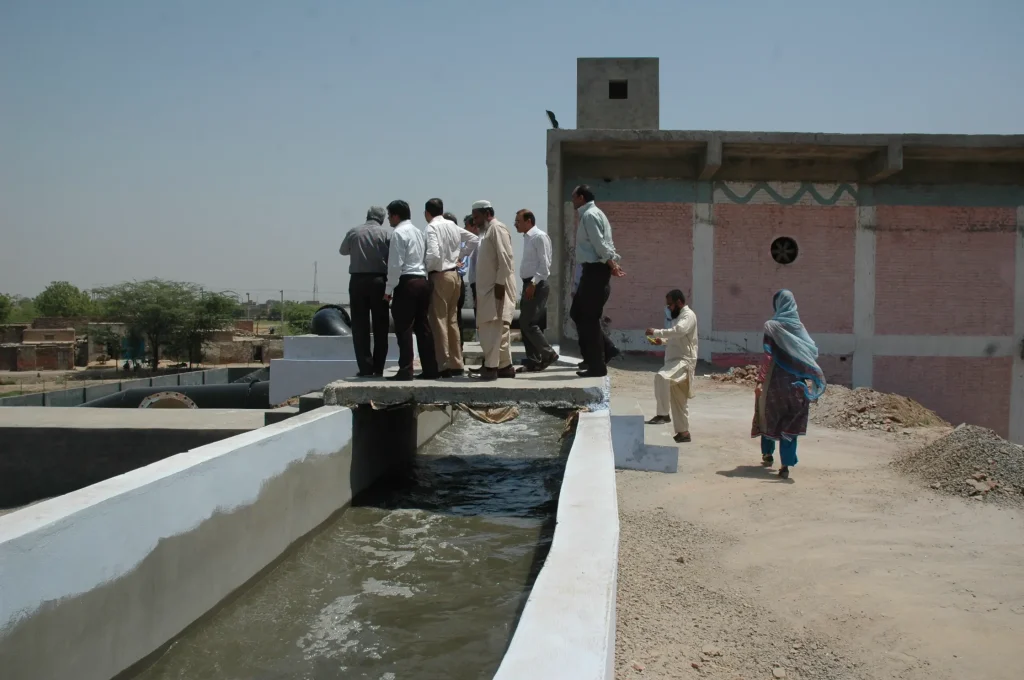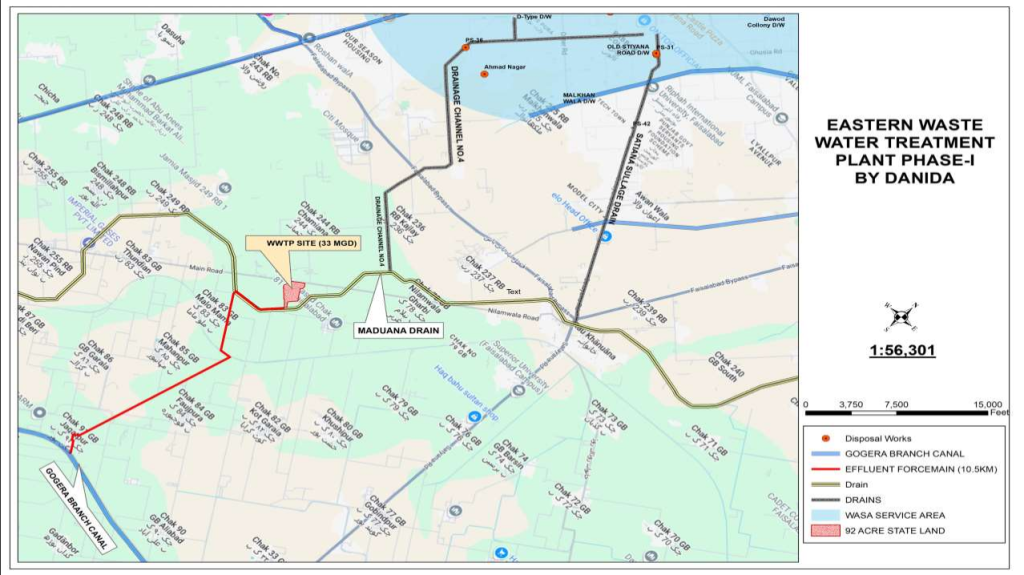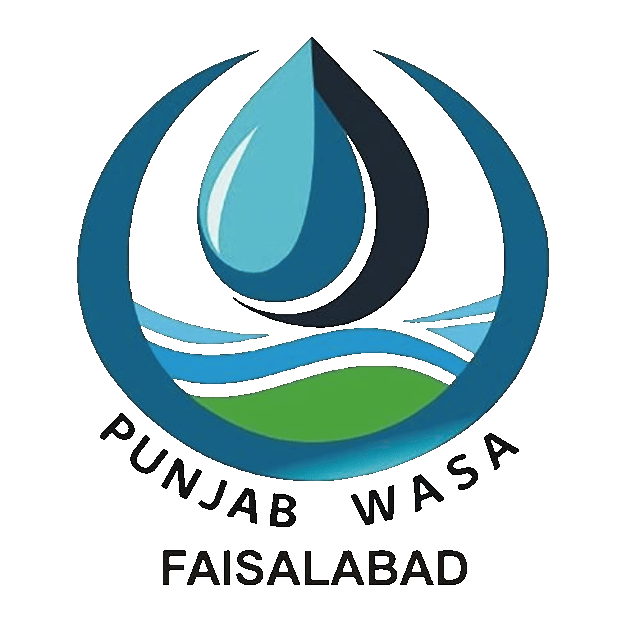Waste water treatment Plant
Eastern Wastewater Treatment Plant

Project Overview
The Eastern WWTP, designed to treat up to 44 million gallons per day (MGD) of wastewater, is a key initiative led by WASA Faisalabad. Now in Phase I, this plant will treat wastewater before it enters natural water bodies, helping to prevent pollution, improve water quality, and create a healthier environment for Faisalabad’s residents.
Key Highlights:
- Project Capacity: 44 MGD in Phase I
- Location: Eastern Faisalabad
- Primary Objective:To treat wastewater, preventing contamination of natural water bodies and promoting cleaner, safer water throughout the region.
Why Faisalabad Needs an Advanced Wastewater Treatment Plant
Key Benefits:
- Improved Public Health: Reducing pollutants and contaminants in water decreases waterborne diseases and public health risks.
- Environmental Protection: Prevents the contamination of local rivers and preserves local ecosystems.
- Sustainable Growth: : Supports Faisalabad’s growth with a responsible and sustainable approach to water and sanitation management.
The Project in Detail
- Wastewater Collection and Transport: WASA Faisalabad has developed a network of channels and pipelines to direct wastewater from across the city to the plant efficiently.
- Primary Treatment: This initial treatment removes larger particles and debris from the wastewater, preventing clogs and equipment damage in later stages.
- Secondary and Tertiary Treatment: Through advanced biological and chemical processes, the plant removes smaller contaminants, ensuring the treated water is safe for discharge back into the environment.
Positive Impacts on the Community and Environment
- Water Conservation: Treated wastewater can be repurposed for non-potable uses, helping to conserve Faisalabad’s freshwater resources.
- Economic Opportunities: The project’s construction and operation phases create jobs, contributing to the local economy.
- Public Awareness and Education: This project can also serve as a platform for educating the public about sustainable water practices and the importance of sanitation.
Conclusion
Construction of Eastern Wastewater Treatment Plant (33 MGD) of Faisalabad City, (Phase I)

Background
Location Chak No. : 244/RB, Faisalabad
Sponsoring Agency DSIF : Denmark (Tied Loan + 35 % Grant) & Government of Punjab
Executing Agency : WASA, Faisalabad
Gestation Period Original : Approved: 48 Months
Proposed: 122 Months
Approved Cost
(27-07-2020) : PKR 19,071.222 Million
L.C: PKR 1833.043 Million
F.C: PKR 17,238.179 Million (Euro 100 Million)
Revised Cost
(Proposed ) :
Total PKR 56,036.79 Million
L.C: PKR 2,815.53 Million
F.C PKR 53,221.26 Million (Euro 178.00 Million)
Expenditure till date L.C : PKR 123.26 Million, F.C: Nil
Scope of Project
- Construction of Wastewater Treatment Plant based on Trickling Filter Technology
- Rehabilitation of Kacha Channel
- Trunk sewer from terminal point of channel No. 4 up till Wastewater Treatment Plant (3 kilometers)
- Force main to pump out treated water in Gogera Branch Canal (10.5 KM)
- 3 Years O&M
Mode
Outcome of the Project
- Improvement in environmental conditions of Faisalabad City
- Reuse of treated water for irrigation by pumping into Gogera Branch Canal.
Status
- Environmental Protection Department (EPD) has granted NOC.
- Project Management Unit (PMU) has been established.
- State land (90 Acres) has been transferred to HUD/WASA-F.
- Consultant Selection Process has been completed i.e., M/s Niras, Denmark.
- Consultant has mobilized on site since June 2022 and submitted all the deliverables of the design phase.
- Tendering process for the contractor selection has been completed, however, award of work is subject to approval of revised PC I.
- The project was discussed in 34th PDWP meeting held on 02.10.2024 and project was recommended for consideration/approval of CDWP.
- CDWP meeting was held on 27-01-2025.The CDWP recommended the revised PC-I to the ECNEC for consideration/approval.
- ECNEC approved the Revised PC-I of the project in its meeting held on 25.03.2025.
- Loan agreement will be signed after the approval of Revised PC-I from ECNEC
